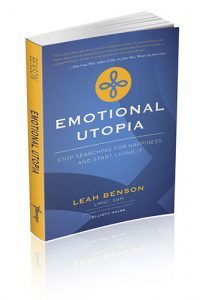Why Revisiting Your History in Therapy Makes Your Life Better Today
Sometimes it’s hard to understand the point of revisiting your history in therapy. I get it. It’s the past. Long gone. So, why go there?
If your goal is to feel better today and your past was horrible, why go through that again? If your past was fine, or even great, what’s the point? How can it have anything to do with why you are suffering today?
You Don’t Have to Revisit Your History
The reality is you don’t have to go back. There are plenty of ways to address the symptoms you’re having without returning to your history.
Many symptoms of depression, anxiety, and anger can be diminished or eliminated by practicing mindfulness and engaging in active exercises to discharge excess built-up energy inside you.
But What if That Doesn’t Work?
Unfortunately, despite your best efforts, sometimes your symptoms will remain unchanged. Or you’ll find that your symptoms get activated so often that the techniques you’re using to manage them aren’t keeping up.
If mindfulness and active discharge exercises don’t keep your symptoms at bay, then you’re probably going to have to revisit your history to make your current life better.
That’s because sometimes your body is predicting things you don’t know you’re predicting. And sometimes, you’re following a storyline that’s false.
History Can Be Recorded By Your Body Without Your Mind Knowing It
Before your brain had the capacity to remember things with the story-making part of itself, called the hippocampus, you were learning at an enormous rate. Taking in everything around you without a filter and building the network capacity of your brain. Making connections in your brain and hard-wiring pathways so you could access information faster and easier.
During that time in your life when you couldn’t remember “stories,” your body was making and storing “memories” in your body in things like muscle tension, breathing style, posture, and expectations, etc.
These “memories” are revealed in the way you “do” life, even if you are not aware of it. In other words, there are lots of things you remember about your very early life even if you don’t think you can remember them. These memories account for most of the way you are, the way you act, and the way you interact.
Learning to “see” these types of memories comes from being mindfully aware of how you “do” life. Putting that information in the context of your life history then keeps mysterious predictions from having the same effect on you that they once had.
Ketamine-assisted-psychotherapy is another tool that helps you to “see” these types of memories and build new connections in your brain. New ways of doing things. New ways of predicting your environment.
Sometimes (lots of times) the stories you tell yourself are false
Humans are story-making machines. It’s how we make sense of life. So of course, you tell stories, too. Stories about who you are, about why you are the way you are, about your value, about how life might have been better if you had been different.
You created most of those stories during a time in your life when you had a limited perspective from which to make sense of what was happening to you. You were small and dependent. And you relied on giants who were 4 or 5 times your size to protect and provide for you.
Imagine trying to hold your own against someone 4 or 5 times your current size and who has total control over your life. Now imagine if that person was temperamental, manipulative, selfish, or aggressive. Imagine that your sense of being a good or bad person came from pleasing that temperamental, manipulative, selfish, or aggressive person.
Now you know what it’s like to be a child from 0 to 12-years old. In order to survive, you made up stories about yourself that were probably not true. You, like all children, have accepted blame for things that were not your responsibility.
These stories undermine your strength, your energy, your confidence, and your ability to get what you want out of life. To change things, you’re going to have to revisit and revise these stories.
The Reward
As I mentioned, you don’t have to revisit your history. There are many ways to address the symptoms that plague you.
However, if you choose not to visit your past, revising the falsehoods you pile on yourself and integrating your feelings with their stories, you’re likely to continue to suffer from depression, anxiety, poor self-confidence, or anger issues. You’ll continue recreating your past in the present through patterns of abuse, neglect, or emotional distance; and your suffering will continue.
Here’s the good news.
The reward for visiting your past and making sense of your life by having a narrative that matches your authentic emotional experience of your history is that your life will have a new vibrancy to it. The way you interact with friends, lovers, and children will improve.
Your life will be richer, more vital, and full of fantastic things you never dreamed of. You will be flexible, adaptive, and have a more harmonious and profoundly rewarding, authentically lived life.
Interested in a harmonious, profoundly rewarding, authentically lived life?
Give me a call. We’ll talk.
![]()
Contact me now to set up your free 15-minute phone consultation.









